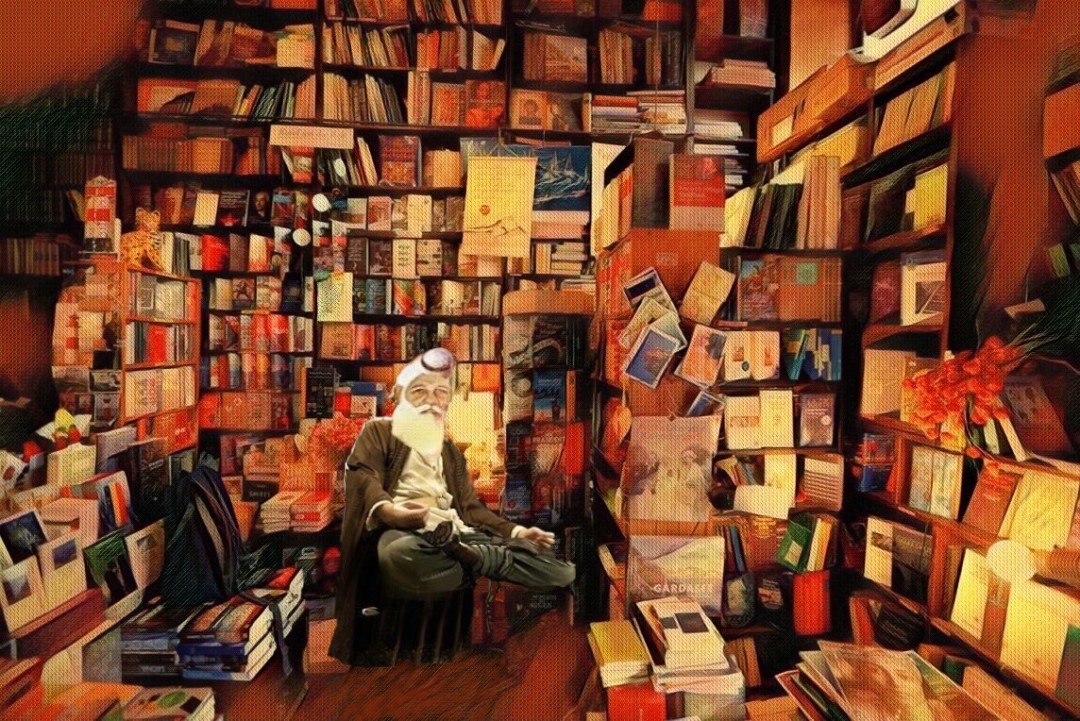Information technology refers to the ways most literature comes nowadays into existence while the internet refers to its most popular distribution channel.
The book industry has come to the realization that they have lost their monopoly of being the sole gate keepers of the literary world, while it can still be a career boost for most unknown writers when one of their books gets the backing of the pr-machines of one of the “big five” publishers.
Most of the time, the traditional publishers are running behind the facts. Very often they are not consecrating new authors anymore, but fish up self-published writers who managed to create some reader’s public and realized some significant sales upon their own accord.
This is still not the main bone that I want to get to. While most people in the book industry have made peace with this new reality, there are still few people who want to investigate the issue how literature itself has changed because of the new technologies.
While most literary critics still consider the act of producing literature the result of some lonesome author typing away on his keyboard somewhere in a quiet corner, there are internet groups working on games that involve the creative input of a multitude of participants. Books have been emerging that have been a spin off from such creative interaction but are often set aside as game-manuals for those who join this game- community at a more developed state. People are stimulated to develop their own avatars and integrate them into the social structure of this virtual world. It is a headache for the copyright Taliban.
Not to mention that the new information technology offers every creative mind the tools to experiment with images, music and texts without having first to wrestle three years through some art school, music conservatorium or creative writing degree. Not only the distribution of art has been democratized, but also its creative process. Of course, it still takes a creative mind to do something innovative with those new tools. Fact is that you do not have to spend three to five years of your life anymore to acquire some basic skills that each art form requires. You have computer programs who can do the mind-numbing work for you. That is what for they were created. Nowadays the artist can express his creative drive by using computer generated music, images and texts. What remains however is that it still takes some perseverance, intellect, and discipline to create something artistically meaningful.
The downside is that nothing prohibits people with the attention span of a goldfish and the creative talent of a dinosaur, to also use those tools also and to throw their fabrications online. Luckily, where art criticism used to be either a very lonesome or academically activity, the internet has also created much interactive forums who sieve through this tsunami, separating what is attention seeking trash from what has potential and value. But most of those groups, out of necessity, have a very narrow focus. I wish someone could create a bot that I could program with my own parameters and then I let it run during the night, every morning coming up with five new angles to my points of interest. Maybe it already exists and I didn’t stumble upon it yet because of all this litter on the internet.

I’m all for this infinite amount of accessibility for just about anyone who has internet but I’m mostly thankful that not everyone gets the success they dream of as their work has to work their way through the process until recognition is given/acquired.
LikeLiked by 2 people
Success is mostly depending upon the marketing skills of the artist. If you see what crazy prices are paid for some so called pieces of “conceptual” art, I just shake my head. Recently I read “The $12 Million Stuffed Shark: The Curious Economics of Contemporary Art” by Don Thompson. “Branding” is the critical term he uses to explain everything.
LikeLiked by 1 person
great post. luck, advertising, money… sometimes that’s all that’s required, rather than actual good writing…
LikeLike
When I was still considering to become a writer, I read an anecdote of two writers meeting each other at the book fair. One of them was a best selling writer and the other one had slumping sales. The latter pointed out that his book had higher literary contend than those of the bestselling author. Whereupon the latter shrugged, “you write literature and I write bestsellers”. Bestselling books deliver what people want to read while literature delivers what people should read.
LikeLiked by 1 person
there’s also the factor of who works on promotion as well…
LikeLike
It mostly boils down to the author’s marketing abilities. Even when you’re backed by a traditional publisher who gives you a promotional budget of 10 K. Not to mention that no agent will even touch your book when you don’t have a website with a minimum amount of 5,000 followers.
LikeLiked by 1 person